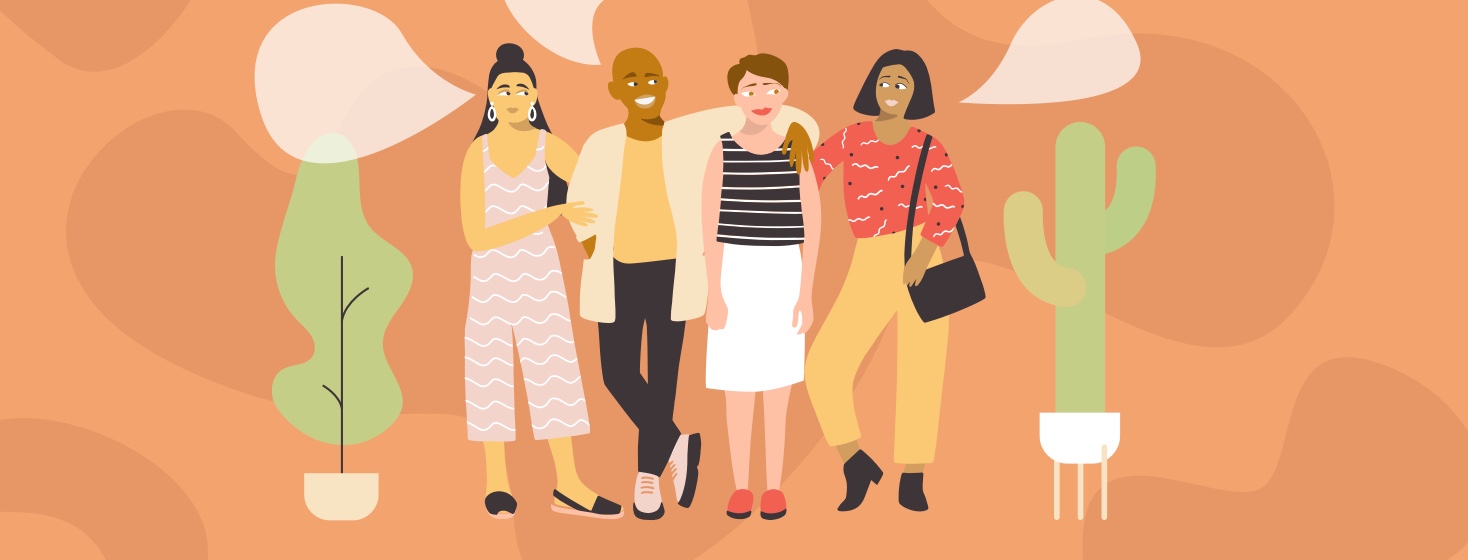Five Loving Things I Need to Hear
Psoriatic disease is two-faced. There is one side of it that is very visible - the flaking, cracking, dry plaques of the skin or the red, inflamed, and swollen fingers and toes, which everyone can see.
Then there is the joint pain which depending on the severity can only be felt by those of us carrying the burden.
The importance of support when living with psoriatic disease
I've shared many times what not to say to someone living with psoriatic disease, but now it's time to share some of the five most encouraging and loving things I need to hear when I'm dealing with a flare or the hardships of having psoriatic arthritis.
1. How are you doing emotionally?
This question will change the conversation between you and your friends. Typically it's common courtesy and an automatic reflex to ask someone how they are doing?
In return, you typically receive a reflex response of "I'm fine", "I'm good", "I'm okay," when in fact it could be the quite opposite.
My friends and I started asking each other, "How are you doing emotionally?" This opens the door to share our truest feeling whether happy or sad and enables us the opportunity to be there for each other in a supportive way.
2. It's all right
Sometimes I am fatigued, I don't want to be bothered, I need to say no, or I just want to be alone. Sometimes I just need my friends so say, "It's all right" and accept how I'm feeling at the moment.
As opposed to trying to get me to feel the opposite of trying to "encourage" me to do something I've already expressed I wasn't in the mood for.
3. I might not know what you are going through, but I'm here for you
Many times when someone tells us something tragic, the first thing we want to do is relate. We want to share what we went through in hopes it will give the person we are talking to hope.
Sometimes this is necessary, but in my experience most times what's needed is someone just willing to listen and acknowledge the pain being expressed. Other times people who can't truly relate will say something such as, "I understand your pain..." when they might not understand in its entirety.
No one is inside your head or your body, so they can't truly know whether or not they understand the pain. However, they can still lend support.
4. It's okay to not be okay
Sometimes I've shared with people my frustrations of how I feel. In an attempt to encourage me to feel better, they will suggest I "shake it off". It's okay to feel angry, sad, frustrated, scared or any other negative emotion.
Sometimes I need to hear that it's okay to feel what I'm feeling even if it's negative for the moment. Doing so acknowledges one's feelings, which sometimes all a person really needs.
5. Thank you for trusting me
Being vulnerable requires an emotional strength which can be hard to extend. To be vulnerable is to be emotionally naked to another human being, it takes trust with the risk of being hurt by the individual you are sharing with.
Vulnerability usually involves sharing something of embarrassment or shame. Sometimes it's nice to hear from the person you are sharing with that they understand the strength it takes to share such intimate details concerning a chronic health condition.

Join the conversation